Hey guys! I’m back {a little late!} with November’s tasks for The Household Organization Diet. Hopefully you had some time to get your master bedrooms organized last month and are ready to move on. This month we’ll be working on how to organize the family room and/or the living room.
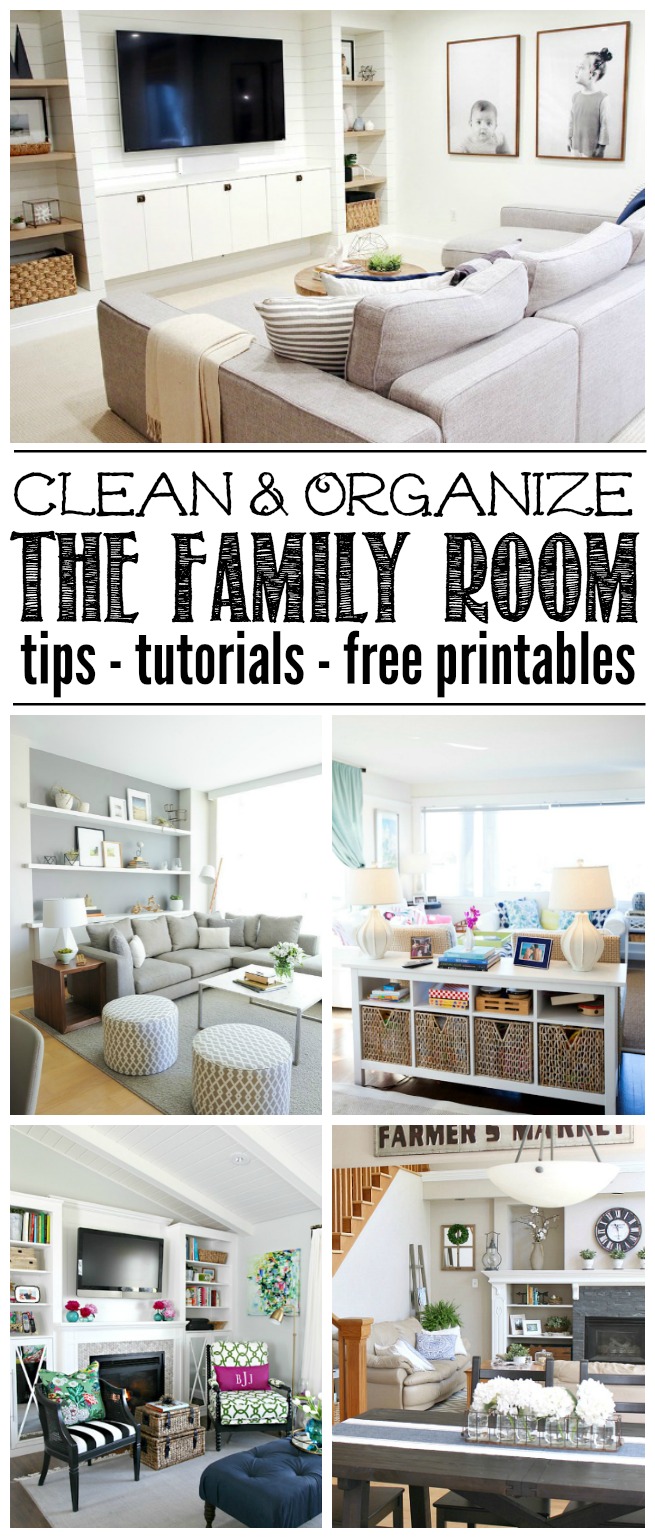
Before you even get started, make sure you have a clear idea of how you want the space to function. This can really vary from family to family so make sure it’s going to work for you! If you happen to have both a family room and living room space, try to keep the functions of each room separate and avoid allowing clutter from one space to spill over to the other.
So here is the plan for how to clean and organize the family room/living room this month…
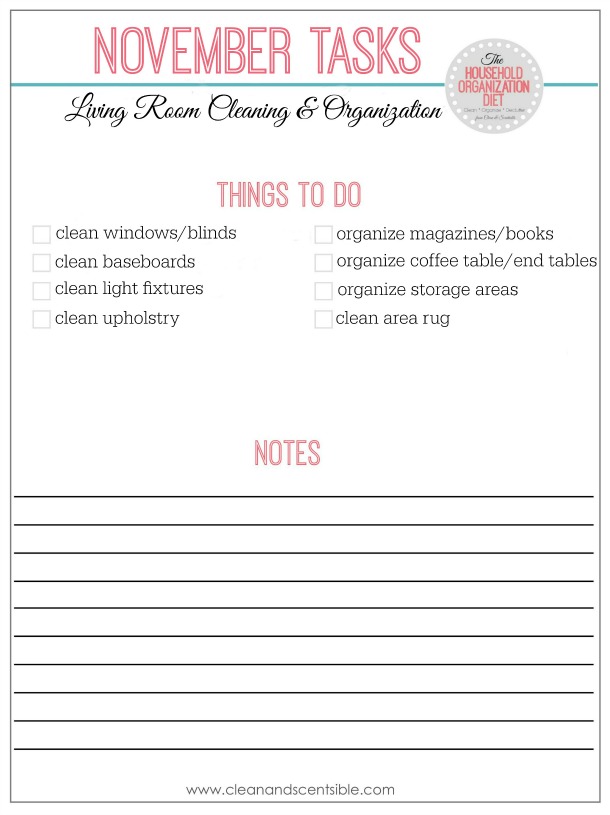 DOWNLOAD THE NOVEMBER TASK LIST HERE
DOWNLOAD THE NOVEMBER TASK LIST HERE
DOWNLOAD A BLANK NOVEMBER TASK LIST HERE
To keep myself on track, I also like to use a monthly calendar to write down when I plan on doing each of the tasks. You can read more about how I use the calendar HERE.
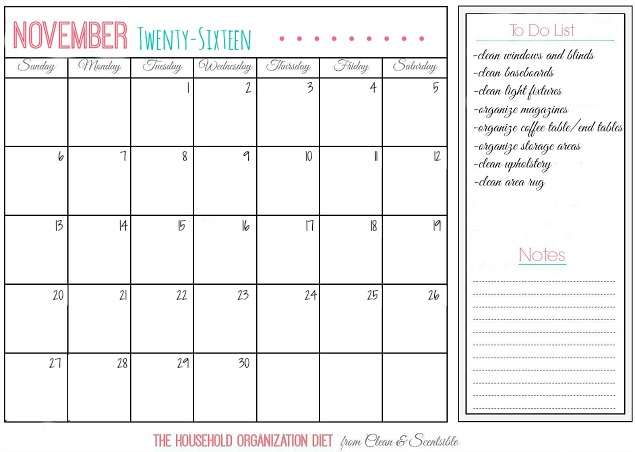
DOWNLOAD THE NOVEMBER CALENDAR HERE
DOWNLOAD A BLANK NOVEMBER CALENDAR HERE
Are you ready to get going? Here are some tips to help you organize the family room…
Determine the function of the space.
Depending on the size of your home, the family room can often take on many different functions. It may be your main entertaining space or the primary area for the family to gather to watch television or movies. It may also need to function as a small office space, playroom, or crafting area. If possible, try to divide the rooms into “zones” for each of these functions. You can then determine what you need and what storage would be appropriate for each of these mini areas. The family room below is a great example of sectioning the room off into various zones.
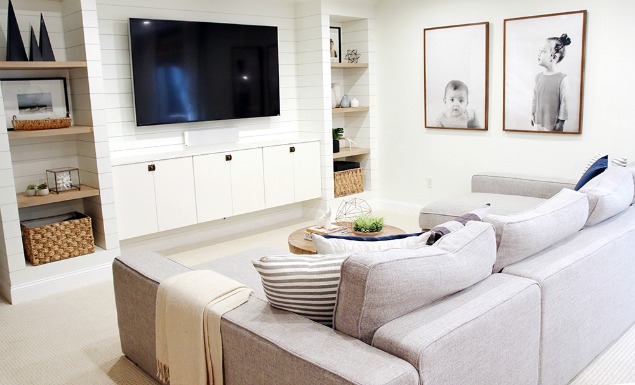
{source}
Determine your furniture layout.
If you only use the space for television watching, you’ll likely choose a different layout than if you use the space primarily for entertaining. If you have multi-uses for your space, look for adding some furniture that can easily be moved around such as ottomans or stools that could be stored under a sofa table. If you have toy storage or a small workspace, place them off in a corner if possible so it’s not the main focus of the room. Proper furniture placement not only increases the function of the room but can also make it look and feel a whole lot bigger. There’s a great infographic here that has lots of ideas for how to arrange your furniture according to function.
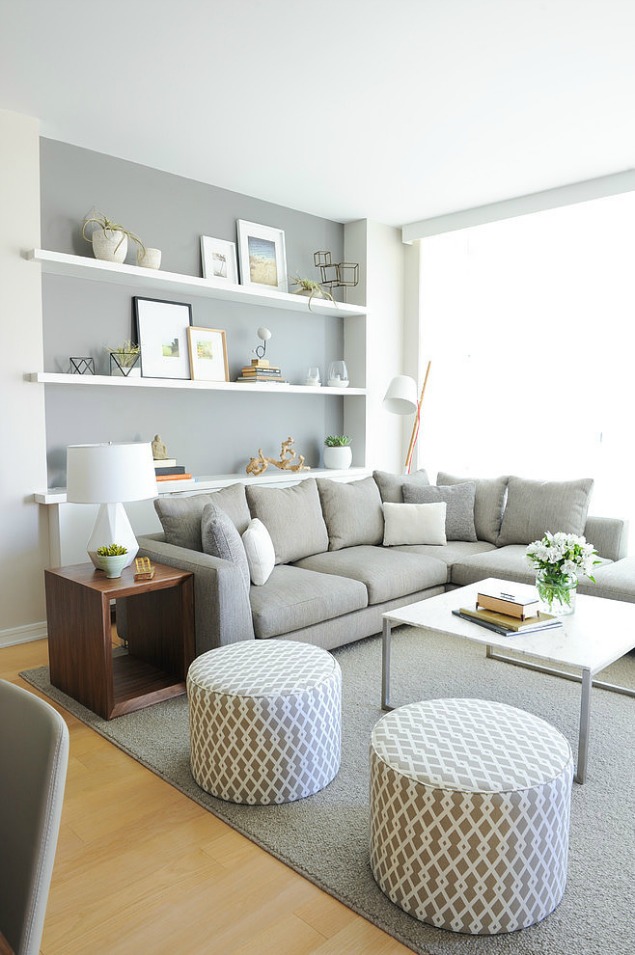
{source}
Declutter.
This is probably the most important thing when it comes to organizing any space. DO NOT SKIP!! If the item does not fit into the functions that you have determined for your space, it either needs to go or be relocated to a location that you will actually use it. For decor items, make sure that you still love them and they are highlighting your space rather than just cluttering it up. I could speak on this category forever so go here for my tips on how to declutter any space and this post for specific ideas to declutter your family room.
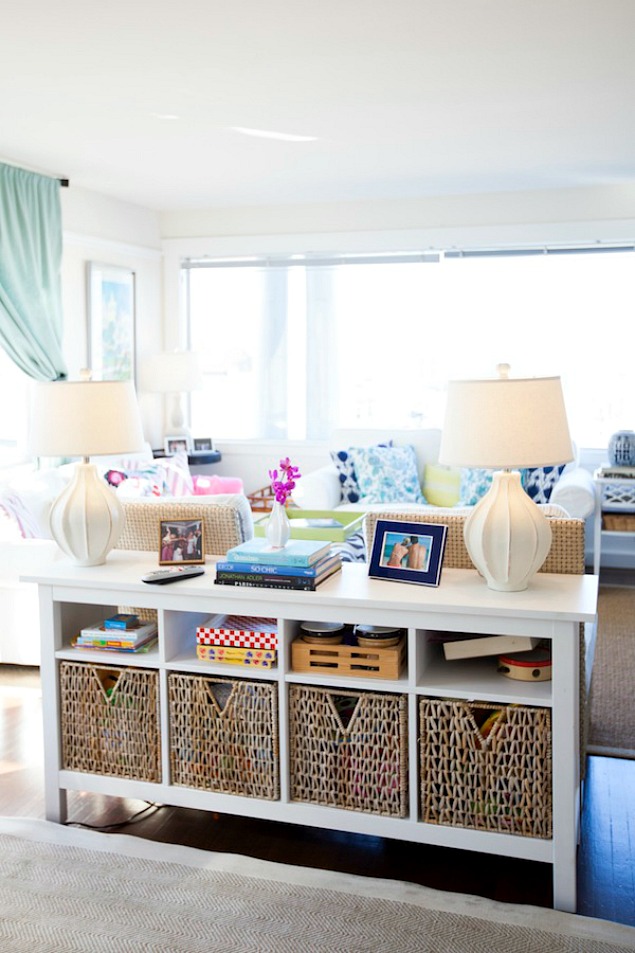
{source}
Find storage options.
Once you have decluttered all of those items that you no longer love, need, or use, it’s time to find some functional storage solutions. Think back to your zones and determine what needs to be stored in each area. You’ll likely want to have a mix of both closed storage to hide away items that you don’t want showcased as well as some pretty open storage to add some warmth and personality to your space.
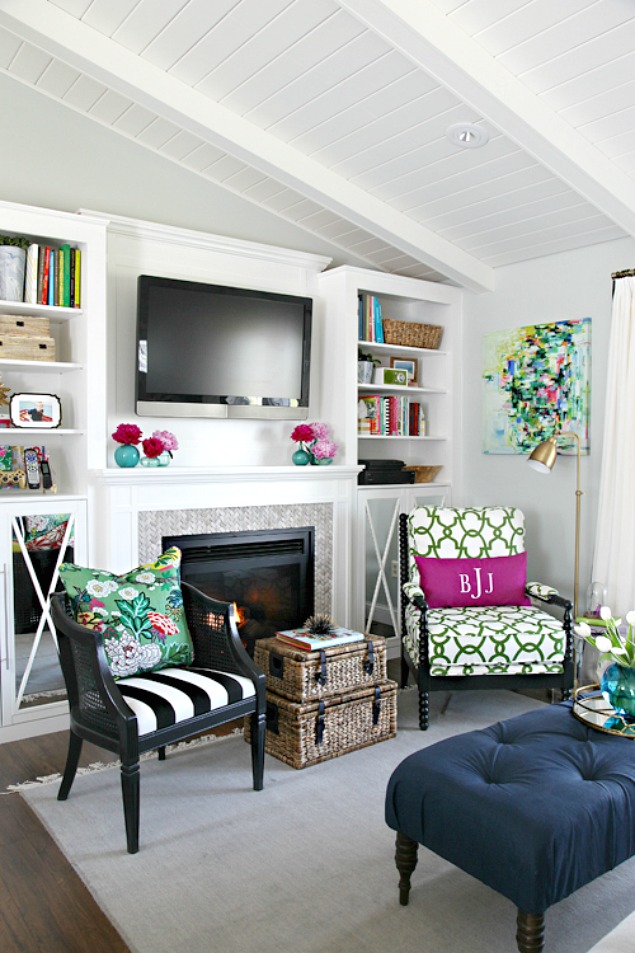
{source}
Closed Storage
There are many different options for closed storage depending on the size of your space and what you need to store. If you’re short on space, look for furniture to pull double duty. Look for coffee tables or end tables with drawers, or ottomans that have storage underneath. Built in storage units with both closed cupboard doors as well as open shelving ideas are a great way to go if you have some money to invest. For a less inexpensive option, look for stand alone storage units or storage cubes at big box stores such as Target or Ikea.
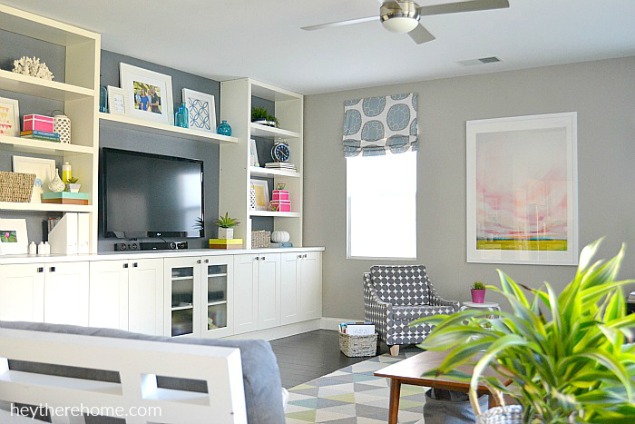
Open Storage
Baskets and bins can add some beauty to your space while still providing some practical storage solutions. Fill them with cozy blankets, pretty pillows, books or magazines. A ladder is a nice way to use up some vertical space and can hold blankets, magazines, photo frames, or hanging baskets. While there are now many store bought display ladders that you can purchase, try giving a DIY a try. They’re a really easy beginner project that can be made for around $20 or less. We have a DIY storage ladder in our bathroom, but the idea could totally be adapted to the family room {or any other space!}.
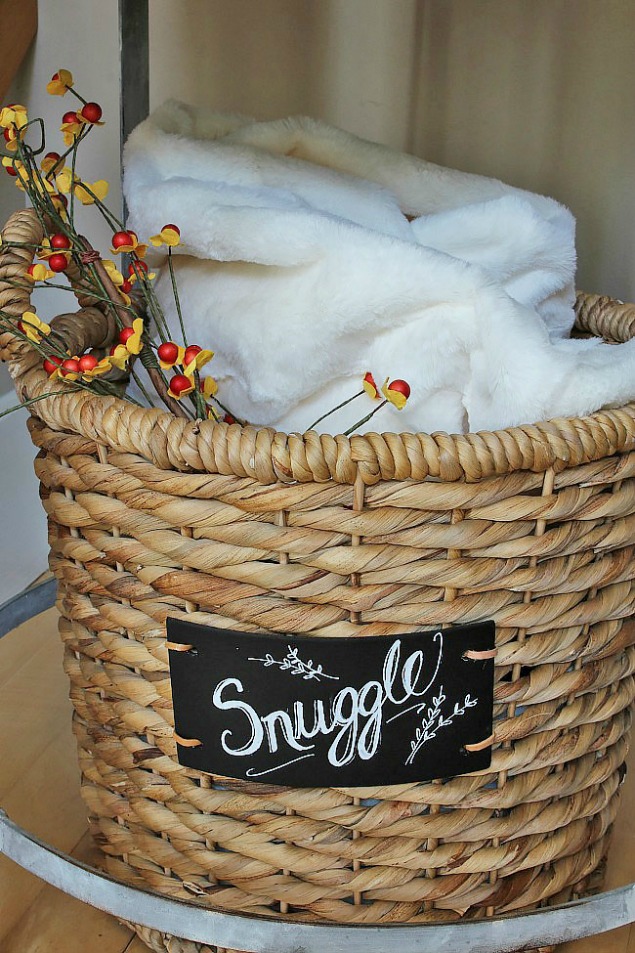
{source}
If you have specific size requirements, consider making your own storage bins. These DIY wooden crates provide a huge amount of storage, but can be tucked away under the bottom shelving unit to keep things looking neat and tidy.
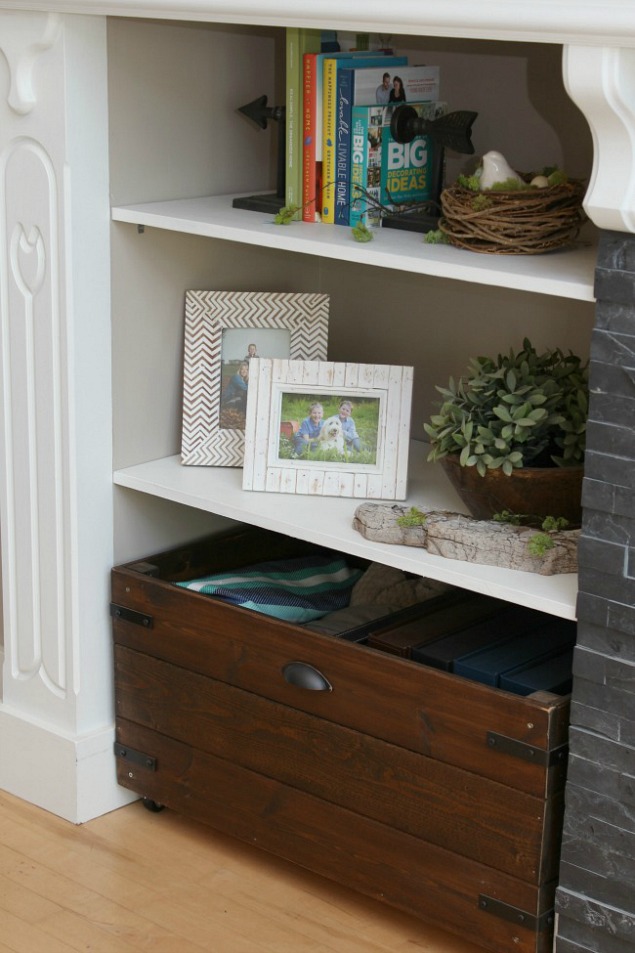
{source}
Hide Cords
Cords from televisions, PVRs, video game consoles, lamps, etc. can quickly become a cluttered mess. Try to keep cords out of sight whenever possible or look for cord tubes that will gather all of the cords up together if this won’t work. If you can, try to arrange items that need to be plugged in as close to an electrical outlet as possible, or use furniture, or a large bin or basket to hide the cords. Be careful of some of the DIY options out there, if you have live cords. I’ve seen many ideas using cardboard boxes or material storage that just don’t seem safe. Check out this post to find out how to hide television cords or use Command Brand cord organizers to minimize the look of loose dangling cords.
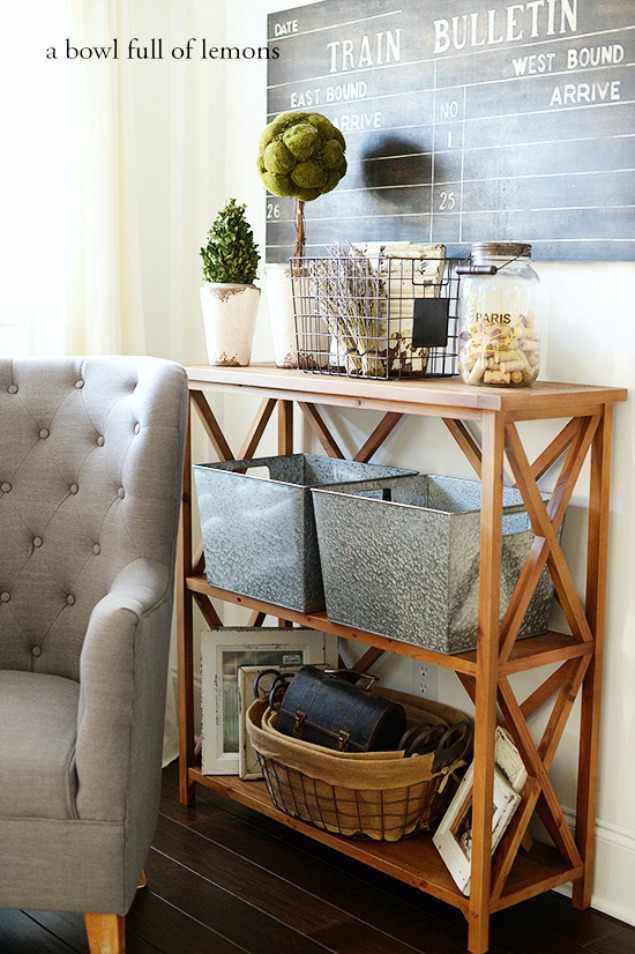
{source}
I hope this has inspired you to start to organize your family room space. With a little time and effort, it can be a wonderful place for you and your family to relax in and enjoy! If you have any specific questions or trouble areas, feel free to let me know!
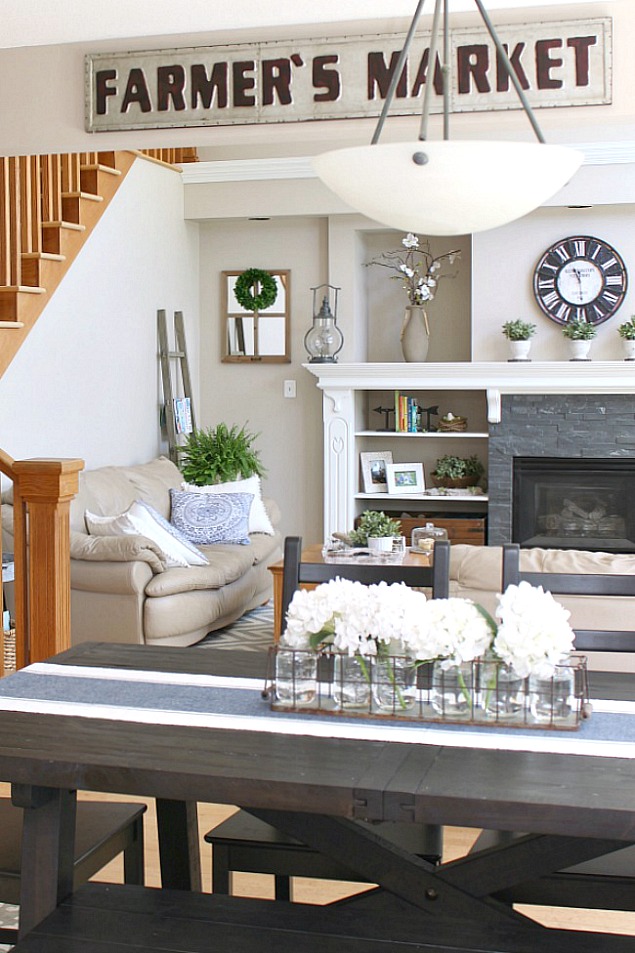
{source}
Happy Organizing!
For more family room organization ideas, check out these posts…
How to Declutter the Living Room
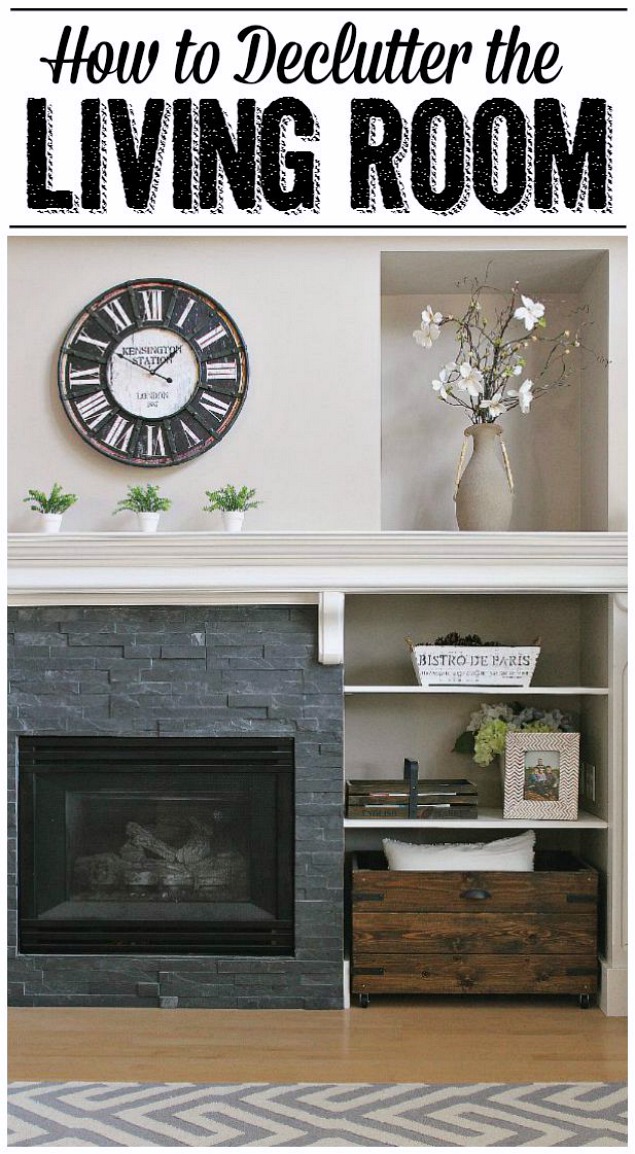
How to Clean and Organize the Living Room
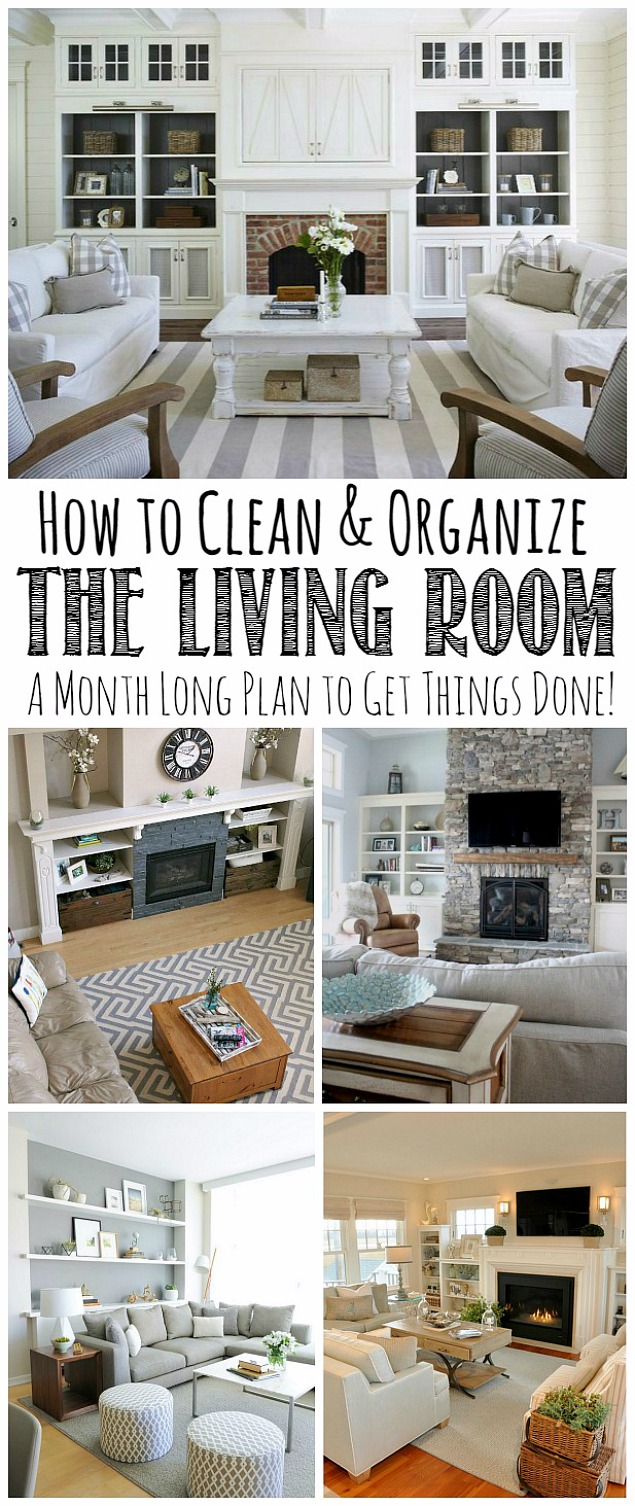
How to Remove Stains from Carpets
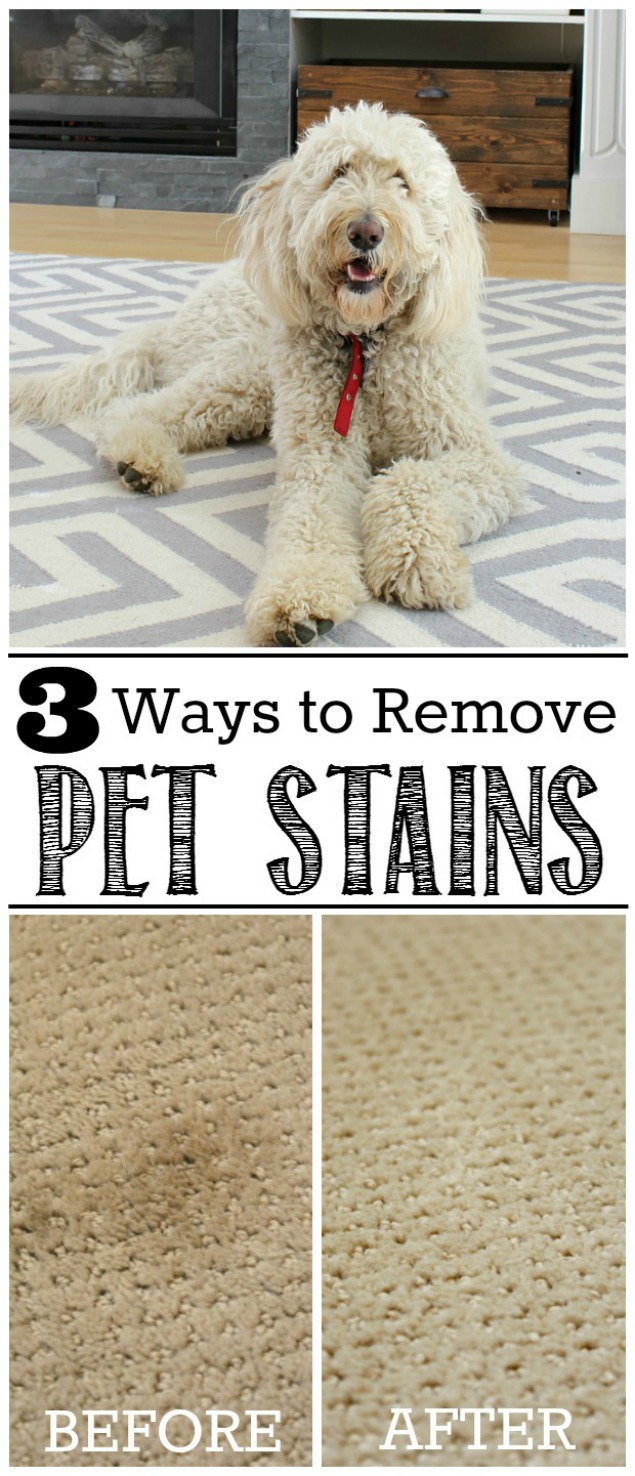
Leave a Reply